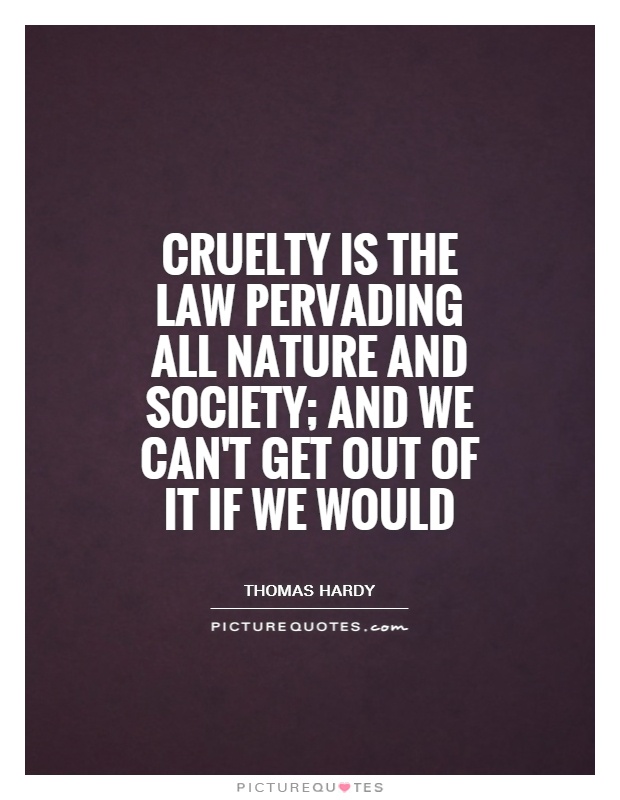Cruelty is the law pervading all nature and society; and we can't get out of it if we would

Cruelty is the law pervading all nature and society; and we can't get out of it if we would
Thomas Hardy, a renowned English novelist and poet, often explored the theme of cruelty in his works. In his novel "Tess of the d'Urbervilles," Hardy delves into the idea that cruelty is an inherent part of both nature and society, and that it is impossible to escape from it.Hardy's characters often find themselves at the mercy of cruel fate, facing hardships and injustices that seem to be an inevitable part of their lives. In "Tess of the d'Urbervilles," the protagonist Tess experiences a series of tragic events that are beyond her control, ultimately leading to her downfall. Despite her efforts to escape her fate, Tess is unable to break free from the cruelty that surrounds her.
Hardy's portrayal of nature in his works also reflects this theme of cruelty. The natural world is often depicted as harsh and unforgiving, with characters facing challenges and obstacles that test their resilience and strength. In "The Return of the Native," the character Eustacia Vye is portrayed as a tragic figure who is ultimately undone by the cruelty of nature and society.
Hardy's exploration of cruelty in his works serves as a commentary on the human condition and the inherent flaws of society. He suggests that cruelty is a fundamental aspect of human nature, and that it is impossible to escape from it. Despite our best efforts to be kind and compassionate, we are ultimately bound by the laws of nature and society that dictate our actions.












 Friendship Quotes
Friendship Quotes Love Quotes
Love Quotes Life Quotes
Life Quotes Funny Quotes
Funny Quotes Motivational Quotes
Motivational Quotes Inspirational Quotes
Inspirational Quotes